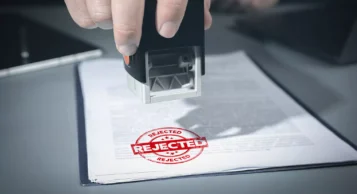
What Is a Social Security Disability Freeze?
Your Social Security retirement or disability benefit amounts are based on your earnings—what you pay into the Social Security system while working.
So when you have an interruption in your work, it reduces Social Security’s calculation of how much you’ll get in benefits.
But what happens when you can’t work through no fault of your own—because health problems forced you off work?
You can avoid getting penalized in your Social Security earnings record by getting a Social Security Disability freeze.
Let’s look closer at how this works.
What Does a Social Security Disability Freeze Look Like?
Here’s an example of a Social Security Disability freeze:
A worker develops a disability and has to stop working at age 40.
From the date when they officially qualify for Social Security Disability benefits, Social Security freezes their earnings history.
That means, for the purposes of Social Security’s records, it treats them as though they are earning the same amount of money they made before medical conditions sidelined them from work.
So instead of averaging into their earnings history as a zero, the wage earner’s time away from work gets frozen where it was when they stopped working—as though they are still working and paying into the system.
This is generally a good thing for the worker.
If the worker can later return to work, they will still get credit for their missed work time at the level of pay they made before they left work. So their later Social Security benefits won’t be reduced.
But there is one situation in which the worker’s earnings calculation, and future Social Security benefits, still can get lowered: if Social Security decides the official date of disability was later than what the worker argued.
So a wage earner could file for disability benefits and say their debilitating impairments began on Jan. 1, 2020. But then Social Security says it thinks the qualifying disability didn’t begin until Jan. 1, 2022.
In this hypothetical situation, the wage earner would show $0 in earnings for 2020 and 2021.
This will erode the benefits this person would have otherwise qualified for without the work gap.
If you can’t work because of health problems, one of the best ways to argue for the disability beginning date that preserves the most benefits for you, in the long run, is to work with a Social Security Disability lawyer on your claim.
When Getting Disability Benefits Is Better for Your Earnings Record than Trying to Work
While having an earnings gap could hurt your Social Security benefits level, there is another circumstance where you still shouldn’t work while applying for disability benefits—and you should instead focus on getting approved for benefits, and with a disability starting date that covers the missed time.
I mentioned this in a previous blog post about working while you’re seeking disability benefits.
Consider a wage earner who is 55 and has a high earnings history performing highly skilled labor.
If a medical condition stopped them from performing their past work but did not rule out other work, they could find themselves earning less, or even minimum wage, in a light duty job.
The amount they make could be less than they would receive from Social Security Disability benefits.
And they would undermine their earnings average by working for less than they earned in the past.
Of course, there are other benefits to working besides pay, such as mental health and emotional benefits from maintaining an active lifestyle.
But speaking from a strictly economic standpoint, such a person could be better off not working.
How to Find Out Where Your Social Security Benefits Level Currently Stands
You can find out where Social Security currently places your retirement or disability benefits amounts by setting up an account on www.myssa.gov.
Social Security used to provide a paper statement that gave an estimate of your future benefits, but they stopped sending those in 2010.
The estimate you see on your online statement is based on how much you’ve paid into the system through FICA taxes or self-employment taxes—and the assumption that you’ll continue paying into the system at the same rate.
Do you have questions about how working, not working, and getting a Social Security Disability freeze impact your earnings history?
Or do you just need to get disability benefits so you can get your life back on steady ground after a health disruption?
Talk to us at Geary Disability Law.
Written by Tim Geary.
Disclaimer: Blog entries are not intended to be a substitute for actual legal advice. It is important for a representative to understand the specific facts and circumstances of your case before they can provide you actual legal advice. If you have questions about your Social Security Disability benefits, please contact a qualified representative to discuss your case.
Related Posts

Signs You Will Be Approved for Disability in WI: Do You Have a Strong Case?
When you’re hurt or sick, can’t work and need financial help, you’re on an emotional roller...
Read more
Can I Reopen a Past Social Security Disability Denial in Wisconsin?
People get denied for Security Disability benefits all the time. And very often, they just drop it....
Read more
What to Expect When You Call Geary Disability Law for Help with Social Security Disability
When you call Geary Disability Law for help getting Social Security Disability, you can expect us...
Read more



